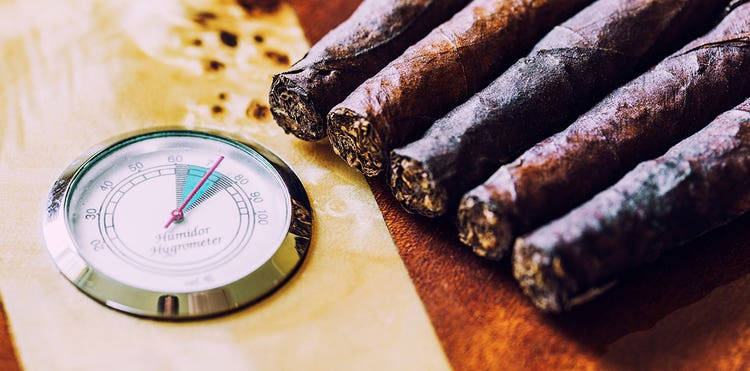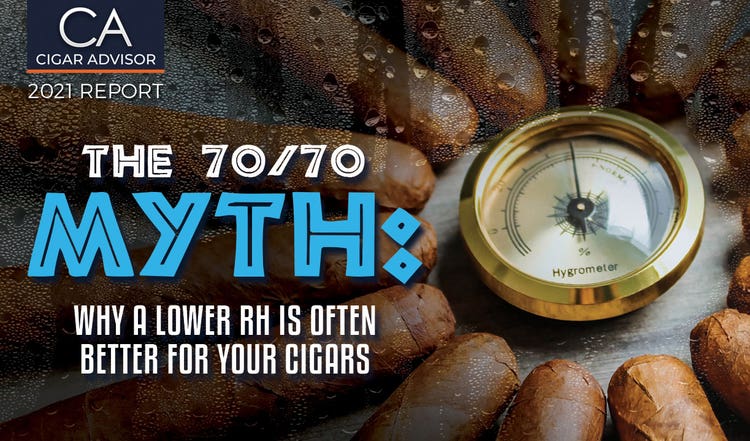
The 70/70 Myth: Why a lower RH is often better for your cigars
Imagine a world where you don’t have to worry about your cigar humidification. It’s something all smokers have likely wished at one point.
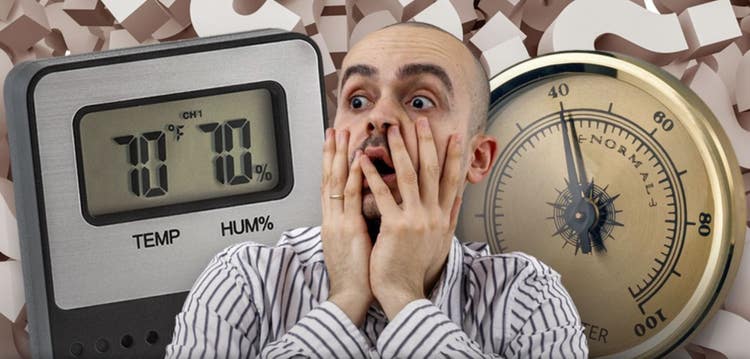
And while some of us may revel in the tinkering of our cigar collections, it’s safe to say that most of us have found maintaining humidity to be frustrating at one point or another. Part of that frustration is an endless sea of conflicting advice. We’re here to set the record straight.
You can’t maintain your humidor properly without knowing where to set it.
There’s a school of thought called the ‘70/70 rule.’ It means that proper relative humidity (RH) and temperature for your cigars should be kept at 70% and 70-degrees F. Under the rule’s guidance, your cigars will fare quite well. But unless their humidors are kept in climate-controlled rooms, most cigar smokers know the reality; in the winter it’s too cold…in the summer it’s too hot – you get the idea.
These days, the 70/70 rule is largely considered obsolete. Sure, your cigars will be fine if you keep your humidor set as such, but you may not get the most out of them (and can even experience burn issues). The Cuban Revolution and the cigar boom changed everything. We’re even feeling the ripples to this day. Our understanding of cigars and how to grow their tobaccos has expanded. Cigar countries of origin have shifted. And with these changes comes a new pool of wisdom to draw from. Here are preferred RH levels from us here at Cigar Advisor, along with numbers from some of the most respected names in the cigar biz.
Not a math nerd? Not a problem. Those numbers average out to about 67%. Which checks out, because based on my own experience, as well as the trusted words of other colleagues and long-time cigar smokers, keeping your cigars at temperatures around 65° and RH around 67% is a good starting point.
I recently heard an interesting tidbit about the Davidoff cigar store in London. They apparently keep their walk-in humidor for vintage cigars so cold that you practically need a winter coat. But you can bet that the humidity in that humidor is perfectly balanced to ensure those rare primos don’t lose their finer qualities.
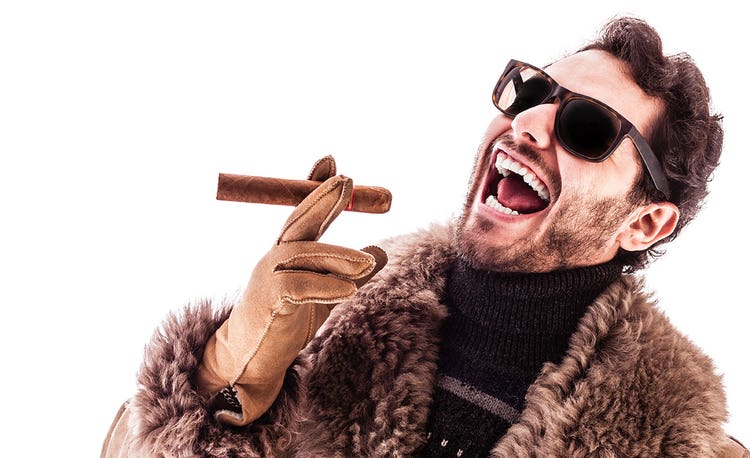
The right humidity and temperature will help a cigar burn better.
Note that the higher the relative humidity, the softer your cigars will be, which can cause the burn problems I mentioned earlier. When the RH is lower, your cigars will feel a bit firmer. But if the RH and temperature are too low, your cigars will eventually lose their moisture and turn into kindling. It’s also interesting to note that many cigar smokers who have cigars with thick wrappers, like Maduros for instance, say that they fare better at a lower RH, closer to around 65%. This is most likely due to the higher amounts of oil in the wrapper leaf.
As cited above with the London cigar store, there must also be a balance between the temperature and humidity.
Temperature affects humidity and humidity affects temperature.
Here’s something that may help prove the point. John has a 20-cigar humidor on his office desk. During the summer, the average temperature inside is a constant 75 degrees. Going “by the 70/70 book,” that would appear to be a little high. With a standard small round humidifier, the humidity gets up to around 68%. The result is cigars that border on squishy and burn like shit. After removing the humidifier, the RH went down to about 62%. That would appear frighteningly low to a lot of cigar smokers, yet the cigars burned well and tasted great. And as we all know, wetter cigars are always hard to keep lit.
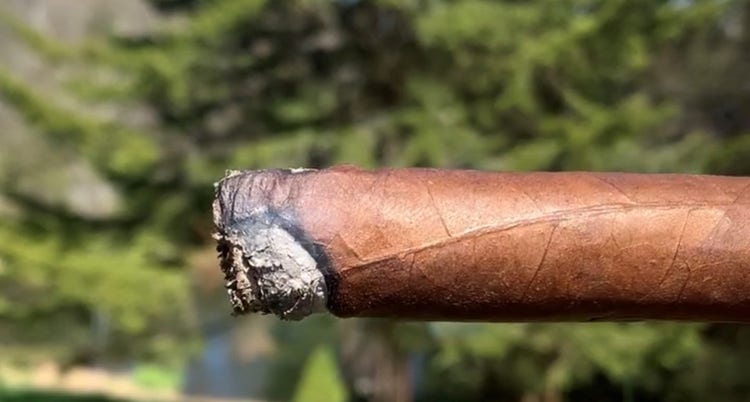
When the RH dipped to 60% and he felt a little paranoid, he put a small Boveda 75% packet in the box to give the RH a boost. (Not one of their regular sized packets. The small ones that many tobacconists will complementarily toss in the bag along with your cigar purchase.) Within two days, the RH was up to 68% and cigars were all soft again. A lower humidity – even on a smaller scale – was needed.
The moral of this story is that a lower RH in the summer months can help keep your cigars balanced when the ambient temperatures (and humidity in some areas ) climb unavoidably higher.
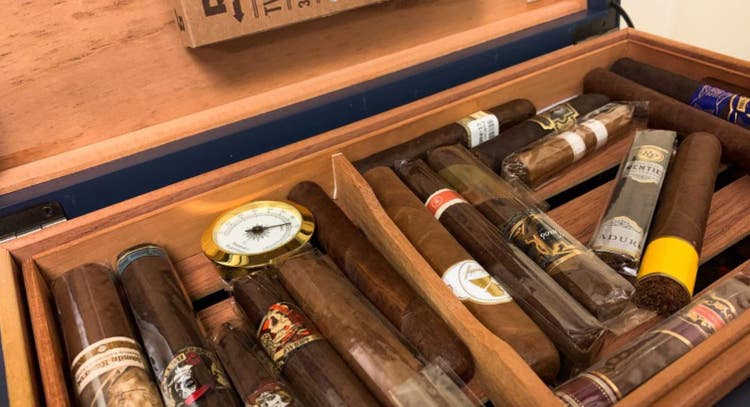
The basic rule for higher and lower than average temperatures is, high temp/lower RH; low temp/higher RH. As for me, I try to keep the temp/humidity balanced at about 70 degrees/65% RH average year-round. Eventually, you’ll find the right mix for your humidor. Not to mention…humidors vary too, based on the size of the box, types of cigar humidifiers you use, etc. The key is to find the comfort zone that works best for your stash.
Try the 135 rule.
The 135 rule is an improvement of the 70/70 rule that accounts for smokers’ varied humidity preferences. Instead of relegating you to a set temperature and humidity, you can adjust your humidity (between 63-72%) and match the temperature to a number that will come close to totaling 135.
Say you want your cigars kept at 65% RH. If you keep the temperature at 70 degrees, the numbers added together equal 135. If you want to keep them at a higher RH like 70, lower the temperature to 65 degrees instead and you’ll likely have a better outcome.
Just keep in mind, the conventional wisdom of keeping cigars between 63-72% RH still applies, especially because raising your cigars’ temperature too far above the 70-degree mark (as high as 74° can be problematic), and runs a high risk of tobacco beetles.
One last thing…
Remember that like cigar flavors, RH is at least somewhat subjective. Just look at all the different humidity preferences we gave above. We don’t even all agree.
And for that matter, you’re probably not going to turn down your heat or AC and sacrifice your comfort for a slightly more suitable smoke. These rules – like most cigar rules, are merely guidelines that can be broken (within reason). Just do your best and you’ll probably be fine.
Here are a couple of cigar humidification accessories to help you keep your stash fresh…
Boveda Humidity Packs
Just set it and forget it. I prefer the 65% Boveda packs myself, but you can find lots of options to suit your preference between 69-72% RH. Lasts a few months to a year and beyond depending on conditions. If you’re lazy like me, you’ll love ‘em.
Famous Humidor Solution
Still have an old puck-style humidifier? Famous Humidor Solution will help you supercharge it with a combination of propylene glycol and distilled water. Together, they help your humidor regulate itself with minimal upkeep and at a minimal price.
